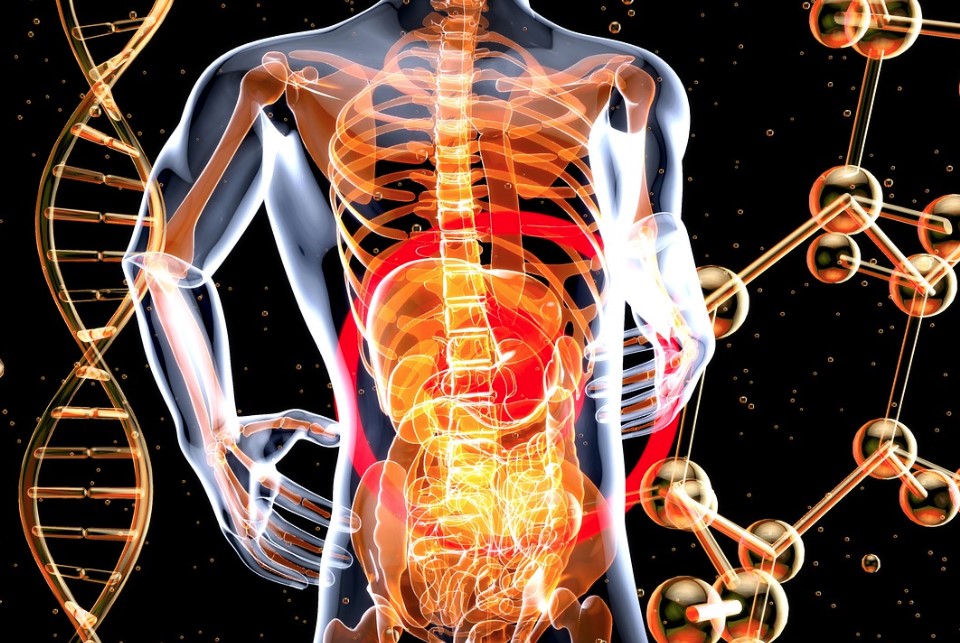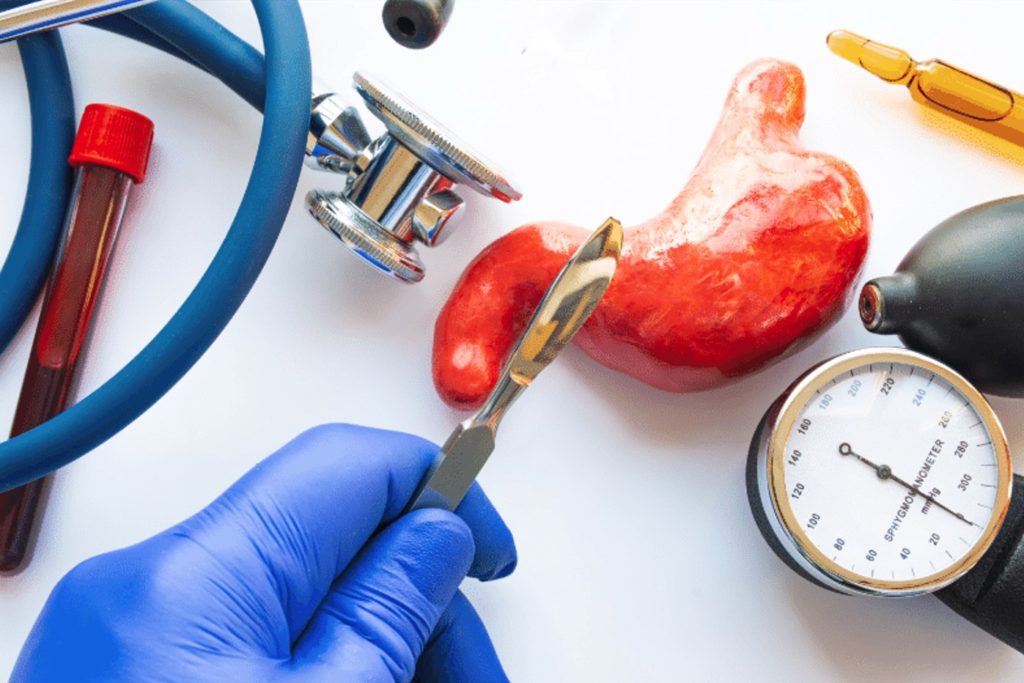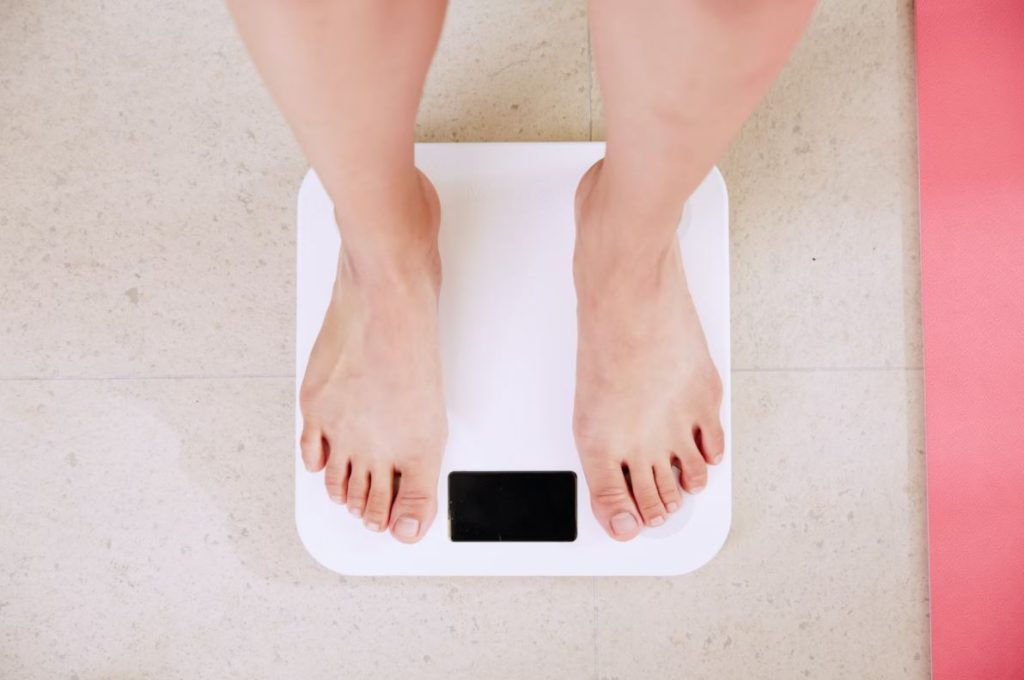In today’s health-conscious world, weight loss is a top priority for many people. However, the secret to shedding those stubborn pounds may lie in an unexpected source—your gut health.
Researchers have uncovered surprising connections between gut bacteria and our ability to lose weight effectively. Maintaining a healthy gut microbiome is crucial for keeping our digestive system functioning optimally but can also impact our body composition and mood and even prevent chronic diseases.
In this blog post, we’ll delve into these vital links between gut health and weight loss, uncovering how understanding this complex relationship could be the key to reaching your fitness goals while nurturing your overall well-being.
Key Takeaways
- A healthy gut microbiome is crucial for weight management, impacting inflammation, insulin resistance, and appetite regulation.
- Dysbiosis (imbalance of your gut bacteria) can occur when harmful bacteria outnumber beneficial ones leading to obesity and weight gain.
- Prebiotic-rich foods, fermented foods, probiotic supplements, and a fiber-rich diet can help promote optimal gut health for long-term weight management success.
- Managing stress levels and prioritizing quality sleep are important factors in supporting gut health and achieving lasting results on your wellness journey. Regular exercise is also vital.

The Importance Of Gut Health For Weight Loss
Gut health is vital for weight loss, and an imbalance in gut bacteria can lead to obesity due to inflammation, insulin resistance, and dysbiosis.
The Connection Between Gut Bacteria And Obesity
As a health-conscious individual, you might be surprised to learn that your gut bacteria play a significant role in maintaining an ideal weight.
Recent research has revealed that individuals with obesity tend to have a less diverse gut microbiome than those with a healthy weight. This lack of diversity can lead to imbalances or dysbiosis within the microbial population.
In turn, these imbalances contribute to inflammation and insulin resistance – two key factors responsible for weight gain. Additionally, certain strains of gut bacteria are more prevalent in obese individuals than their lean counterparts.
For example, studies conducted on humans and mice showed drastic alterations in the composition of gut bacteria following changes in diet. Mice fed high-fat diets developed more significant populations of bacteria associated with obesity while also showing signs of inflammation and insulin resistance which led them toward excessive weight gain over time.
Dysbiosis And Its Impact On Weight Gain
Maintaining a healthy gut microbiome is essential for weight management. Still, when the balance of bacteria in our gut becomes disrupted, it can lead to dysbiosis- a condition where harmful bacteria outnumber beneficial ones.
This imbalance has been linked to obesity and weight gain because it affects our body’s metabolic processes, making it harder to maintain a healthy weight.
Dysbiosis can also impact insulin resistance and increase inflammation, which contributes to weight gain by reducing the body’s ability to regulate blood sugar levels and causing the accumulation of belly fat.
Antibiotic use is one major cause of dysbiosis because they kill off harmful bacteria and affect beneficial ones that help keep gut health in check.
To combat dysbiosis and promote a healthy GI tract, incorporating probiotics into your diet through supplements or fermented foods like yogurt can be helpful.

Factors Affecting Gut Health And Weight Loss
Diet, medication use, exercise, and sleep all play a crucial role in maintaining gut health and achieving weight loss goals.
The Role Of Diet And Nutrition
As we know, diet and nutrition are vital to our overall health and well-being. Regarding gut health and weight loss, our food can heavily impact both.
Furthermore, including prebiotic-rich foods such as garlic, onions, and bananas helps feed the good bacteria already residing within our gut. On the other hand, consuming an unhealthy or unbalanced diet full of sugar or saturated fat leads to inflammation which can cause insulin resistance – increasing the risk of obesity, among other chronic diseases.
Medication Use And Antibiotics
While some medications can positively impact overall health, they may also disrupt gut microbiota and affect weight management. For instance, antibiotics kill off harmful and beneficial bacteria in the gut, leading to dysbiosis.
It’s important to note that medication use should always be discussed with a healthcare professional before making any changes. Additionally, incorporating probiotics and prebiotics into the diet can help support healthy gut flora while taking medication or after completing a course of antibiotics.
Exercise And Physical Activity
Regular exercise and physical activity are one of the most effective ways to promote gut health and support weight loss. Not only does exercise help you burn calories and maintain a healthy body weight, but it also improves gut function and reduces inflammation.
If hitting the gym isn’t your thing, don’t worry – there are plenty of fun ways to incorporate more movement into your daily routine. Consider taking up a new hobby like dancing or hiking with friends, or aim to walk more throughout the day by taking frequent breaks from sitting at work or watching TV.
Sleep And Stress Management
As we know, managing stress and getting enough sleep are critical components of a healthy lifestyle. But did you know they also play an essential role in gut health and weight loss? When we experience chronic stress or lack of sleep, it can disrupt the balance of bacteria in our gut, leading to inflammation and other adverse effects on our metabolism.
Incorporating stress management techniques like yoga or meditation into your daily routine can help reduce cortisol levels and promote better quality sleep. Additionally, prioritizing getting adequate restful sleep each night can allow your body to properly regulate hormones related to appetite control, reducing cravings for unhealthy foods.

Strategies For Promoting Gut Health And Supporting Weight Loss
Incorporate pre- and probiotics into your diet to improve gut bacteria diversity, aiding in weight management. Eat a balanced and fiber-rich diet to encourage healthy digestion and nutrient absorption.
Manage stress levels and prioritize sleep to reduce inflammation and support gut health.
Incorporating Pre- And Probiotics
As someone who wants to lose weight and improve gut health, incorporating pre- and probiotics into your diet can be a game-changer. Here are some easy ways to do it:
- Add more fermented foods to your diet, such as yogurt, kefir, sauerkraut, kimchi, and tempeh.
- Take a high-quality probiotic supplement daily to help boost the levels of good bacteria in your gut.
- In addition to probiotics, focus on consuming more prebiotic-rich foods like garlic, onions, bananas, apples, oats, and asparagus.
- Drink Kombucha or Kefir regularly.
- Try making homemade lacto – fermented foods like pickles or salsa for an extra dose of healthy bacteria.
Incorporating “pre” and “pro”-biotics into your diet can help support healthy gut function while promoting weight loss and overall wellness. So why not give it a try?
Eating A Balanced And Fiber-rich Diet
As a nutrition expert, I highly recommend incorporating a balanced, fiber-rich diet to support gut health and weight loss. Here are some tips to get you started:
- Include plenty of fruits and vegetables in your daily meals. These nutrient-dense foods contain fiber that helps promote digestion and supports the growth of healthy gut bacteria.
- Choose whole grains over refined carbohydrates like white bread and pasta. Whole grains such as quinoa, brown rice, and oats are high in fiber, which can help you feel fuller for extended periods.
- Incorporate lean protein sources such as chicken breast, fish, tofu, and legumes to help maintain muscle mass while losing weight.
- Avoid processed foods that are high in sugar and unhealthy fats. These foods can disrupt the balance of good bacteria in your gut leading to inflammation and weight gain.
- Be mindful of your portion sizes by using smaller plates or measuring cups to ensure you’re not overeating.
Remember that eating a balanced and fiber-rich diet is just one piece of the puzzle regarding achieving optimal gut health and sustainable weight loss. Along with regular physical activity, stress management techniques, and quality sleep habits, you’ll be well on your way toward achieving your goals for healthier body composition.
Managing Stress Levels And Getting Adequate Sleep
Stress and lack of sleep can negatively impact gut health and weight loss efforts. Here are some ways to manage stress levels and get adequate sleep:
- Develop a relaxation routine: Practice mindfulness, meditation, deep breathing exercises, or yoga to reduce stress levels.
- Get regular physical activity: Exercise can help reduce stress and improve sleep quality.
- Limit caffeine intake: Consuming too much can affect your ability to fall and stay asleep.
- Establish a consistent sleep schedule: Go to bed and wake up simultaneously every day, even on weekends.
- Create a comfortable sleep environment: Ensure your bedroom is dark, quiet, relaxed, and comfortable for restful sleep.
- Avoid electronics before bedtime: The blue light from electronic devices can disrupt your body’s natural sleep-wake cycles.
- Seek professional help if needed: If you have trouble managing stress or getting adequate sleep, consider talking to a healthcare professional for support and guidance.
By managing stress levels and getting adequate sleep, you can promote gut health and support weight loss efforts in the long run.

Incorporating Physical Activity Into Daily Routine
As someone who’s been through the journey of weight loss myself, I’ve learned how important it is to incorporate physical activity into your daily routine. Here are some tips for doing so:
- Start small: Begin by setting achievable goals for yourself. Whether taking a 10-minute walk daily or doing a few push-ups and sit-ups, starting with small steps can help you build momentum.
- Find an activity you enjoy: Exercise doesn’t have to be a chore! Try different activities until you find something that feels fun and fulfilling, whether dancing, hiking, swimming, or lifting weights.
- Make it part of your routine: One of the easiest ways to make exercise a habit is to schedule it into your daily routine. For example, if you’re a morning person, try waking up early for a brisk walk before work.
- Mix it up: Don’t get stuck in a rut – vary your workout routines so your body stays challenged and engaged, preventing boredom and burnout.
- Get support: Consider joining a gym or signing up for group fitness classes where you can meet like-minded people who can provide motivation and encouragement.
By incorporating physical activity into your daily routine, you’re supporting weight loss and improving overall health and well-being.
The Outlook On Gut Health And Weight Loss
The relationship between inflammation and weight gain, the gut-brain axis and hormonal regulation, and the importance of maintaining gut health for overall health and long-term weight management are all compelling reasons to pay attention to your gut.
The Relationship Between Inflammation And Weight Gain
As someone invested in their health and weight loss journey, you may have heard of the term “inflammation.” Simply put, inflammation is a natural response by your body’s immune system to fight off infections or injuries.
However, chronic low-grade inflammation can become problematic and impact your overall health.
Recent studies have shown that inflammation also significantly affects weight gain. When your body encounters constant stressors such as poor dietary choices or lack of physical activity, it triggers an inflammatory response, leading to insulin resistance and dysregulated metabolism.
By prioritizing anti-inflammatory habits such as eating a balanced whole-foods diet rich in fruits, vegetables, healthy fats, and lean proteins while avoiding processed foods, reducing stress levels through mindful practices like yoga or meditation, and maintaining an active lifestyle, you could help control systemic inflammation; supporting not only long-term gut health but successful weight management over time.
Gut-Brain Axis And Hormonal Regulation
As surprising as it may sound, our gut health can influence not just our physical health but also our mental well-being. The gut-brain axis regulates hormones, neurotransmitters, and other chemicals that affect mood and emotion.
An imbalance or disruption in the gut microbiome – such as dysbiosis or inflammation – can lead to changes in hormone levels and negatively impact overall health.
Therefore, maintaining a healthy balance of good bacteria through probiotics or prebiotics while taking care of your general diet will naturally correct hormonal imbalances, which will help support weight loss goals and bring vital benefits for mental clarity.
Overall, promoting optimal gut health for effective weight loss results requires a holistic approach that considers proper nutrition intake, stress management techniques, and adequate sleep hygiene, among others – all of which work together harmoniously to achieve comprehensive wellness.
The Importance Of Maintaining Gut Health For Overall Health And Long-term Weight Management.
As someone who has struggled with weight management, I understand the vital role gut health plays in maintaining a healthy weight. Our gut microbiome is home to millions of bacteria that help regulate everything from metabolism to immune function.
That’s why it’s crucial for dieters, gym-goers, and those over 50s who want long-term weight management success to focus on maintaining a healthy gut. This means incorporating pre- and probiotics into your diet, eating foods rich in fiber (like fruits and vegetables), incorporating physical activity into daily routines, managing stress levels, and getting adequate sleep.
It’s important not to overlook the impact food intolerances or nutrient deficiencies can have on your digestive health. For instance, lactose intolerance may mean avoiding dairy products or taking supplements designed for people who cannot tolerate milk protein effectively; similarly, low stomach acid may necessitate vitamin B12 supplementation or avoidance of high FODMAP foods like onions and garlic that are difficult for some people digestively speaking.
Conclusion
In summary, there’s a surprising connection between gut health and weight loss. A healthy gut microbiome plays a significant role in regulating metabolism, preventing chronic diseases, reducing inflammation, and maintaining overall well-being.
Incorporating dietary changes such as pre-and probiotics, consuming fiber-rich foods, and managing stress levels and sleep patterns while including physical activity into daily routines can help promote optimal gut health and support long-term weight management goals.
FAQs:
- How does gut health affect weight loss?
Gut health plays a significant role in weight loss by influencing hormones that control appetite, metabolism, and fat storage. An imbalanced gut can lead to inflammation, digestive problems, and an increased risk of obesity.
- What are some signs of poor gut health?
Some common signs of poor gut health include bloating, constipation or diarrhea, constant fatigue or low energy levels, skin irritation or breakouts, and frequent infections.
- What foods should I eat to improve my gut health for weight loss?
Foods rich in fiber, such as fruits, vegetables, and whole grains, help promote healthy digestion. In contrast, probiotic-rich foods like yogurt and kefir encourage the growth of beneficial bacteria in the gut. Additionally, limiting processed foods high in sugar and unhealthy fats is important.
- Can probiotic supplements help with weight loss by improving my gut health?
While research on the topic is ongoing, some studies suggest that probiotic supplements may aid in weight loss efforts by supporting healthy digestion and reducing inflammation. However, consulting with a healthcare professional before starting any new supplement regimen for the best results is important.














